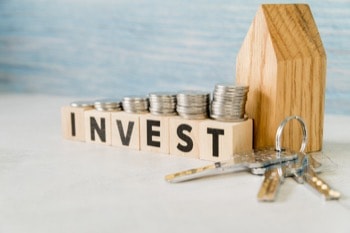When it comes to investing your money, a piece of land has always been a valuable commodity to consider.
Some investors purchase a vacant lot for immediate development. However, others buy vacant lots with the intention of letting the value grow over time. Investing in land is also possible by purchasing surrounding properties close to your own home to increase its overall value too.
Like with any other good investment, there are some key strategies to help you make the best land purchase decision. While no land investment can be 100% guaranteed, land remains a safe one so long as you take into consideration some key pointers like market value, future development in the adjoining properties and zoning laws.
Here are Precondo’s top tips to help you make the best land purchase decisions if you are looking to buy vacant land, residential or commercial property.
Land – Whether Raw Land or Undeveloped Land – Has Flexible Usage.
When you invest in a piece of land, the opportunities are endless.
Perhaps, the main motive of real estate purchase is that you’ve always dreamed of building your own home. Or, you could hold onto it until the value appreciates and sell it to a developer.
Some people even purchase a plot of land to raise cattle on, knowing that at some point they can sell it on if they wish.
Alternatively, you can also build a rental property on a few acres to fetch some extra bucks.
Land has so much potential, that it makes for a very flexible investment.
It’s A Great Retirement Plan.
If you’re currently working, thinking about what you do when you retire can seem tedious at best.
In reality, you are going to need something to occupy your time. The potential to earn extra money while you do so isn’t bad either!
Rental properties are a great source of residual income as well as keeps you informed about the know-hows of land investments and commercial real estate investing.
If you own land, you can think of selling land at a reasonable sale price later. Alternatively, similar to real estate you can rent it for a fixed monthly price.
So, owning a parcel of land is not just a good investment, but it can really help your personal finances grow during retirement.
Land Investments Steadily Appreciates, Especially In Good Locations with Proper Road Access.
The great thing about land is there will always be a use for it. So, if you put some research into the area your land and surrounding properties is based in, along with the types of usage it would suit – it could generate some future income and increase your value as a property owner.
For example, say you find a piece of land in an up and coming area. There are some residential or commercial property developments close by, and the area is desirable.
Buying a piece of land near such an area would be fantastic, especially if your main goal is seeing that land appreciate over time.
A good location also comes down to your intended usage. It’s always worth checking out the types of businesses that operate in the area, along with typical asking prices before you buy.
Buying the right piece of land at the right time is also key. Buying land that is a raw land providing abundant access to natural resources like greenery, air, sunlight should be a primary concern.
How is the Land’s Soil Quality?
One of the important factors while planning to purchase land is to consider the land’s quality of soil. Soil evaluation tests should be performed to determine the rate at which water drains through the soil.
A perc test is necessary to assess whether a septic system may be installed on a site that does not have a convenient connection to the local sewage system.
If a property fails this soil test, it may be difficult to build any type of dwelling on it. Inquire about the requirements for installing a septic network in your area, unless you’re able to connect into the municipal sewer system.
There are land investors who bought plots many years ago, who are now able to retire from the value, so it’s definitely worth researching.
Is Land a Good Investment? – Yes! It Can Be A Great Source Of Passive Income
Passive income is money earned in the background of your other revenue streams. For example, a job would be considered an active income because you are paid to show up each day.
However, passive income requires either a one-time or very little effort. Think of how bloggers or YouTubers created their content years ago, yet continue to earn money from it to this day, even while they sleep!
Land is also a great source of passive income. There are many ways you can go about it too. Traditionally, you can buy land and let it appreciate to earn money without having to do anything.
Alternatively, vacant land could be used for something else that will generate you money. Whether you rent the raw land to other businesses or create a tourist attraction on your land – the opportunities to leverage land investments are plentiful.
If you then go to sell the land at a later date, this in itself is passive income.
More Freedom With Your Investment
Some land investment methods can be quite restrictive. For example, with the stock market you have the option to buy or sell. However, with raw land or built-up rental properties so long as you are following any local government policies – it’s yours to use as you wish.
Land buyers who are using it for one purpose but find another would generate more income, so long as you seek the relevant permission (if required) you can change its usage. Equally, if you, as a property owner, want to sell some of it off and keep the rest it’s yours to do so.
Buy Raw Land or Vacant Land to Diversify Your Net Worth
Investing in land, no matter if it is raw land with zero development, is one of the best methods to diversify your net worth. You can build anything on the land purchased. This can be a personal property or any commercial real estate. It can be owned or rented depending on your preference and property’s actual value.
Having a diverse investment portfolio via owning land and real estate investments is better for your overall financial security. After all, we are only just over a decade out of the last financial crash. Invest in land and other real estate properties to build a diverse inflow of revenue.
Having different sources of income is a great way to help secure your future, regardless of what the markets are doing. Several real estate investors play safe through strategic land investing plans. They invest in buying raw land along with other fully-developed properties.
Is There A Guarantee Of A Good Return On Land Investment or Real Estate Investments? 
On the whole, investing in land (especially if it’s in a desirable location with appropriate road access) is a solid investment move.
Timing plays a huge part in this. Right now, your land might not be worth a lot. But, in a few years if the area begins to pick up that could change.
The opposite scenario could also happen, whereby your land investments aren’t as valuable as they once were.
Keeping Up With the Changing Variables
The return on investment for real estate can be tricky.
As with any other form of investment, you must do your research and keep your eye on the changing variables like the local laws pertaining to raw land or rental properties.
However, it’s important to stress that no investment strategy can be completely guaranteed.
Be Aware of All Land Tax Implications, property Taxes & Bank Loan Terms
As with any big purchase, you must fully clue yourself up on any county tax sales rules and implications. Avoiding land and property taxes would lead to serious criminal and financial implications. So, taking the time to research this in advance is essential.
For example, imagine that you have purchased a piece of land that has a house on it. You renovated it and sold it at a higher profit. The Canada Revenue Agency will then step in.
Unless more than 90% of the house’s interiors were altered (such as walls, ceiling, and floors), then the profit will be taxed as business income.
Consult Professionals Before Making Land Investments
Property flipping is not as easy as others make it look either. You must seek professional advice regarding the process.
In case your property is across the border, then it is recommended that you consult professional cross-border tax experts and advisors. They know the law of the land like the back of their hands. With this proper guidance, you can invest in any piece of land hassle-free.
Consulting legal advisors specialist in land taxes will help you in understanding different laws. Importantly, you know the ins and outs of the processes related to paying taxes.
This will also help in knowing the true market value of the land. This, in addition to the correct cost money, and the exact tax amounts. Buying land is a long process as well as a huge investment. Therefore, one must know in depth the different aspects related to it with due diligence.
How To Be Sure of Overseas Real Estate Investment? 
Many of us dream of owning a property or land overseas. While purchasing land abroad can make for an excellent investment, potential land buyers must be mindful of fraud.
For example, there are instances of buying vacant land whereby people have been promised that an investment is going to bear fruits. But, eventually, nothing materialized. The deposit money is gone, and all that’s left is a feeling of embarrassment and frustration.
Be Double Sure about Property Tax Norms
If you are considering buying vacant land overseas, you must seek legal advice. It’s also a good idea to visit the site and inspect it yourself or enquire for a land survey.
Also, be sure to brush up on the local laws and business practices of the country. These will all help you decide on a reasonable price, figuring the down payment amount, and making sure that your vacant land investment is a smart one.
Take Help of Title Search
Check if a property you have been eyeing for land investing is subject to an easement. A title search will help you in this matter. This will also help in finding out the property’s legal ownership and claims on it.
Accurate property entitlements maximize commercial viability and enhance overall market value. Working to receive the property zoned or rezoned, cleared for development, leased, or authorized for builders becomes all part of the entitlement process.
Finally, keep an eye on zoning laws and leases, especially any hidden expenses. It’s only once you’ve covered all bases, including the property taxes, that you can go ahead with your overseas land investment.
Study What Is Possible
Some residents of Northern Canada have invested in multiple properties. While there are no rules on how much you can invest in land or how much land or indeed how many properties one can invest in – it’s a good idea to make sure a financial return is possible while buying land.
Cash Flow
Always remember that you must treat every real estate investment as a business. One factor that should never slip your mind while buying land is positive cash flow. High-priced market assets of Ontario and Vancouver may make it difficult to maintain positive and eternal cash flow.
Right Choice
Certainly, it is not impossible to get the balance right and make money from your land investment. Many areas throughout these provinces are developing rapidly. Making the right choice at the right time in the right place will help you make your land investment fruitful.
Good Features
The condominiums have several features that attract the masses and will improve your lifestyle quality. The team here at Precondo has seen an increasing number of people looking for new condo developments that they can put their money into.
Takeaway
There are many risks in investing in real estate. These include taking on additional debts from a bank loan, paying taxes, spending on costly repairs, dealing with bad tenants, and receiving notices for a lawsuit. So, you must be able to manage these risks well by exercising due diligence.
However, once you’ve taken the time to understand this guide properly, you will realize that investing in Ontario land is an excellent investment.
The sooner you invest in land, the sooner you’ll be able to start making a profit on it. Whether you intend to sell it to a developer or hold onto it, any land you purchase will slowly appreciate in value over time.
For further information, please drop us a line with any queries you have. Don’t forget, you can also browse our stunning array of condos available across Ontario over on our website.




